The Natural Fuel for
100% Brain Power.
Improves Focus, Energy, Memory Formation and Recall.
Scientificly Approved by Independent Researches.
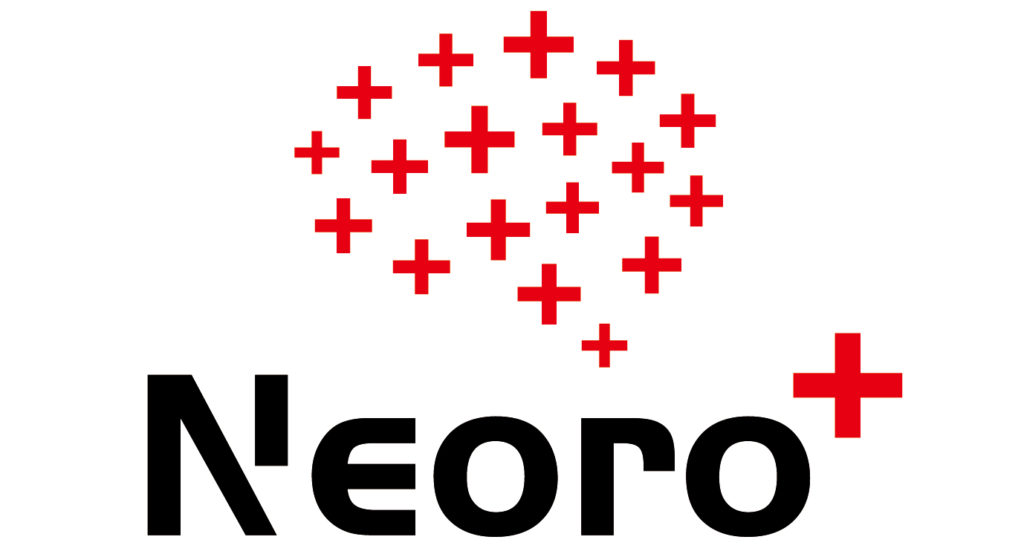
*WHY
As human specie starts losing muscle at the age of around 30 years old, the zenith of our integrated brain performance is approximately in our age of 35-45 range. Just like our muscle fibre, our brain neurons degenerate while we ageing, and our brain chemistry and energy metabolism changes, which may lead to:
– Recall, reaction time and mood diminish
– Brain cell membranes degenerate
– Acetylcholine levels decline[1]
– Nerve growth factor in the brain declines
…
All of these age-related changes are contributing factors to the neurodegenerative diseases of aging, including Alzheimer’s and dementia.
As we all know, protein (amino acids) is the essential nutrient for maintaining muscle health besides regular physical exercises, our brain neurons also need consistently supply of certain nutrients to maintain functional while ageing.

*WHAT
Neoro+ is our proudly launched nootropic dietary supplement product for nerve system health. After years of research and clinical tests, our R&D scholars presented this optimized stacking formulation, after piles of convincing evidence of its positive efficacy were collected. All the ingredients are from 100% natural resource, and with science based studies indicating their therapeutic effect.
• Brain Power Booster
• Concentration
• Memory Optimization
• Anxiety Relief
• Anti Brain Fatigue
• Neuro Protection & Regenesis
-Ingredients:
Alpha GPC (99%)
Phosphatidylserine (60%)
Radix Polygalae 20:1 Extract
Bacopa Monnieri (71% bacosides)
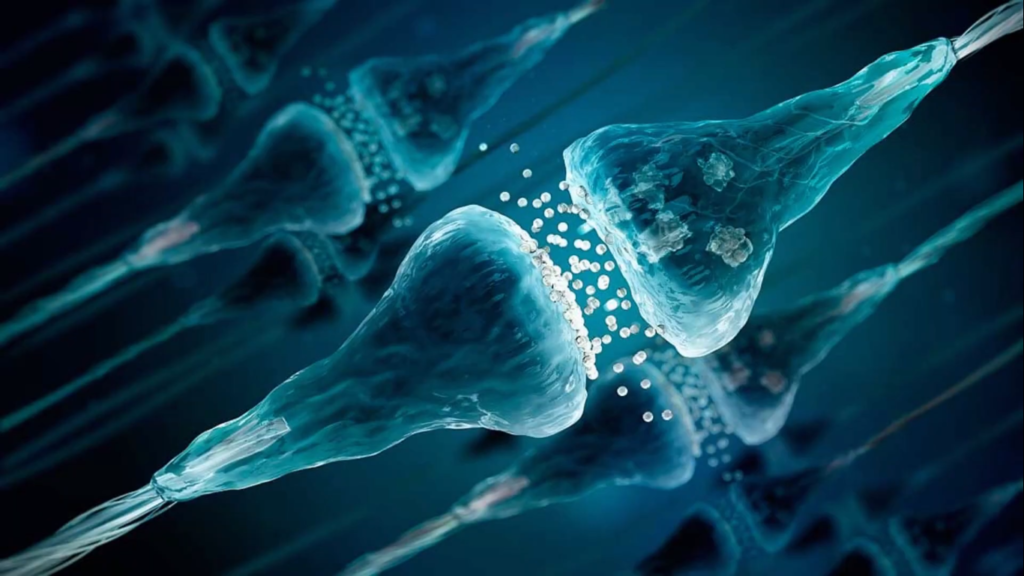
WHAT IS alpha-GPC?
Alpha-GPC (L-Alpha glycerylphosphorylcholine) is a natural choline compound found in our body. It could be produced in small amounts by ourselves, but the quantity of the auto-synthesized choline is comparatively quite insufficient so we need to have supplemental choline, either from food or a supplement.
The brain contains a number of cholinergic areas, each with distinct functions, which playing an important role in arousal, attention, memory and motivation[2]. Choline is considered an essential nutrient which is so vital to cognition and nerve function that, without it, we couldn’t move, think, sleep or remember anything. We need choline as a biosynthetic precursor of the neurotransmitter acetylcholine, which plays a critical role in the neocortex[3]. Also to form phosphatidylcholine (PC) used in building brain cell membranes.
Alpha-GPC could rapidly delivers choline to the brain across the blood–brain barrier (BBB) comparing to other sources of choline, such like CDP-choline or Choline Bitartrate.
Alpha GPC boosts brain health and function in several ways.
Acetylcholine functions both as a neurotransmitter and a neuromodulator, tied to memory formation, learning capacity, attention and overall brain function. Alpha GPC, a biosynthetic precursor of acetylcholine, acts as a neuropretectant by facilitating the production of acetylcholine therefore increasing the neural signaling and improving the communication efficiency between neurons in your brain. In one study, the researchers found Alpha GPC was able to prevent the impairment of attention and memory normally caused by scopolamine. These researchers showed that memory function in young healthy people could be racked up a notch, simply by taking Alpha GPC as a supplement[4].
Alpha GPC directly impacts development of cell membranes in the cerebral cortex. This outer layer of neural tissues or “gray matter” is the information processing center of your brain. It controls intelligence, motor function, organization, personality, planning and touch[5]. Published in Clinical Therapeutics, researchers conducted a double-blind, placebo-controlled trial with mild to moderate Alzheimer’s patients. 400 mg capsules were administered 3- times per day for 180 days. The conclusion of this trial showed consistent improvement in dementia patients given Alpha GPC[6].
Alpha GPC has been investigated for its potential for the treatment of Alzheimer’s disease and other dementias, from the aspect of neural science. Furthermore, it is actually used throughout our body. It even helps the production of human growth hormone. Athletes use it for peak performance, and to help build lean muscle mass. It provides more energy for a workout and quicker recovery[7].
– Benefits and Effects
* Improves Memory Formation and Recall[8][9][10]
* Neuroprotection and Development of New Brain Cells[11]
* Increases Energy and Speeds up Recovery[12][13][14]
* Increases Attention and Enhances Mood[15]
* Boosts memory and attention[15]
* Promotes recovery in stroke patients[16]
* Reverses the symptoms of acute cerebrovascular disease[16]
* Is far more effective than using choline or lecithin in treating disease
Alpha GPC
Acetylcholine
By NEUROtiker – Own work, Public Domain, https://commons.wikimedia.org/w/index.php?curid=2125698
WHAT IS PHOSPHATIDYLSERINE?
Phosphatidylserine (PS) is the major acidic phospholipid class that accounts for 13–15% of the phospholipids in the human cerebral cortex[17]. As an amino acid derivative compound, it is a phospholipid component of the cell membrane encasing every one of our brain cells. It is a natural substance that helps cells membrane stay pliable and is thought to boost the effectiveness of neurotransmitters, which relay brain signals[18]. It is also involved in building mitochondria which are the energy centers of each brain cell, and helps maintain the fluidity and permeability of brain cells. Allowing for the efficient transfer of proteins, enzymes, nutrients, oxygen and glucose into and out of each cell[19].
Phosphatidylserine is essential for cellular health, structure, and protection, but that’s just part of the PS picture: studies show that also a powerful nootropic that may sharpen memory, increase focus, and enhance the ability to learn, reason, and solve problems[20], and it’s vital to virtually all aspects of cognitive function, including memory, mental processing speed and accuracy, and language. It has also been shown to fight the effects of stress and is believed to prevent or delay the onset of age-related cognitive decline effectively[21]. Studies show that PS levels decline with age[22], suggesting that natural production and dietary assimilation may become less efficient as we get older. This change means that supplementation may be key to realizing the many therapeutic and nootropic benefits PS offers. For elderly, one of the main benefits of phosphatidylserine is preventing cognitive decline. One Japanese study of elderly individuals showed that taking phosphatidylserine for 6 months could stave off cognitive decline and signs of dementia[23]. Another study of Alzheimer’s patients suggested three weeks of supplementation could reduce symptoms of cognitive decline[24]. While some evidence confounds these results, the common trend suggests that middle-age and elderly people can prevent many symptoms of cognitive decline with phosphatidylserine.
On the other end of the spectrum, PS is well studied for children who are struggling with ADHD, two months of supplementation of 200mg PS appears to improve symptoms of global and subscale attention deficit and hyperactivity disorders in children with ADHD, and secondary to improving symptoms of ADHD an improvement in short-term auditory memory and impulsivity was noted[25]. [Other studies in children with ADHD have noted promise when pairing PS with fish oil supplementation, with some using a phosphatidylserine structure with the fish oil fatty acids (EPA and DHA) attached to the glycerol backbone[26](study duplicated in Medline[27]) and appears to enhance erythrocytic fish oil fatty acid levels to a level greater than fish oil itself[28].]
Phosphatidylserine works in conjunction with DHA (omega-3) in cells and keeps brain cells optimized for the neurotransmitters dopamine, serotonin, and norepinephrine in the brain[29]. PS promotes healthy nerve growth factor (NGF) and supports the neurogenesis required for long-term potentiation (LTP). Memory formation depends on healthy LTP, and PS increases the number of neurons in a brain cell and promotes the development of new neurons by supporting healthy nerves and the growth of nerve growth factors (NGF)[30].
– Benefits and Effects
* Improves Memory
* Reduces the Negative Effects of Stress
* Improves Symptoms of Depression
* Relieves Symptoms of Alzheimer’s and Parkinson’s Diseases
* May Delay the Onset of Age-Related Cognitive Decline
* Boosts Endurance and Improves Athletic Performance {https://www.braintropic.com/nootropics/phosphatidylserine/}
(Phosphatidylserine is a phospholipid—more specifically a glycerophospholipid—which consists of two fatty acids attached in ester linkage to the first and second carbon of glycerol and serine attached through a phosphodiester linkage to the third carbon of the glycerol[31]. Phosphatidylserine sourced from plants differs in fatty acid composition from that sourced from animals[32]. That’s why our PS is sourced from animal brain tissue.)
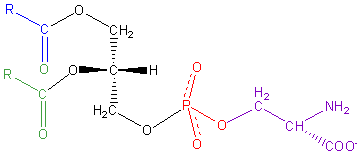
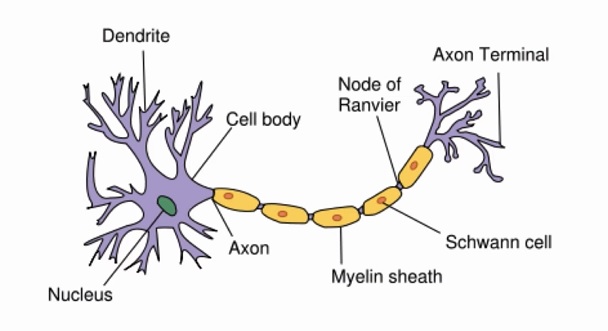
WHAT IS RADIX POLYGALAE?
Radix Polygalae, in Chinese it’s called “Yuan Zhi” (Chinese: 遠志).
While our researchers screening for NOO?, we found this intriguing plant.
Currently, learning and memory ability has been regarded as one of the most important functions in our daily lives, with increasing of life span[33][34]. The elderly always feel that cognitive ability get worse and worse during daily activities. As the aging people grow rapidly, the number of patients suffering from progressive neurodegenerative diseases (ND) including Alzheimer’s and Parkinson’s diseases is gradually increased in the worldwide[35][36]. The cognitive impairments are the most common and critical symptom shown in the diseases[37][38]. ND patients are expected to be an economic and social burden in the near future because they require medical treatment and care giving for a very long time[39][40][41].
Moreover, young generation such as adolescent and students requires better cognitive function because they have to learn and memorize a lot of information and knowledge[42]. Various natural products containing biologically active components have been used as a functional food in the world. Recently, cumulative attention has been devoted to not only the prevention and treatment of disease but also maintaining and strengthening health by natural products or herbal medicines. Beneficial effects of functional food may help improve the health healthy condition and reduce the risk of disease onset during early stage growth process and older ages[43]. Therefore, it needs to develop functional food or medication that can help learning and memory abilities in young people as well as prevent the progressive cognitive deficits in aging people and ND patients.
Roots of Polygala tenuifolia has been traditionally used because of beneficial effects such as: sleeping time enhancement, anti-depression, neuroprotection, anti-inflammatory, MAO-B inhibition, anti-seizure and anti-stress in humans[44][45][46][47]. In animal and human studies, the root extract of Polygala tenuifolia (BT-11) improved cognitive function significantly[48][49][50]. BT-11 also showed anticholinesterase, neuroprotective and antioxidative efficacies in toxin-induced disease models of animal and cell[51][52].
Generally, memory as measured by changes in an animal’s behavior some time after learning is considered to be a process that has several stages, including acquisition, consolidation and retrieval[53]. The improvement of learning and memory of aged mice is mediated by the effects of tenuifolin on the three stages of memory process, that is, acquisition, consolidation and retrieval. This may do so by relatively increasing the levels of NE, DA in the hippocampus and by decreasing the activity of AChE in the cortex[48].
– Benefits and Effects
* Enhances memory
* (May treat) Alzheimer’s & Parkinson’s Disease
* Relieves anxiety & depression
* Anti-inflammatory
* Improves sleep quality
* Anti-tumor effects

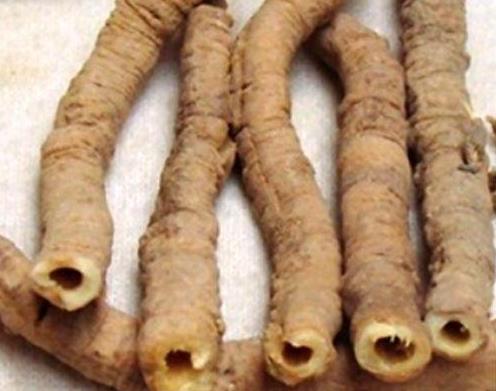
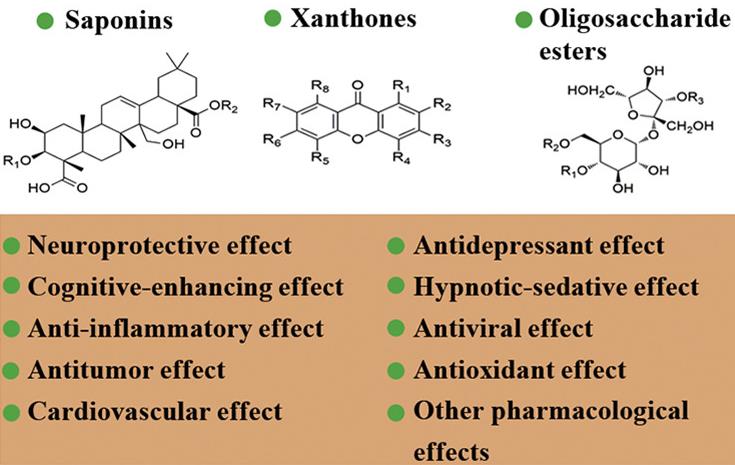
WHAT IS BACOPA MONNIERI?
Bacopa Monnieri has been used for medicinal purposes in Ayurvedic medicine in India for more than 3000 years. It was thought to be so beneficial to the mind and had been a staple of Ayurvedic medicine as a powerful tool to enhance cognitive abilities, reduce anxiety and even protect the brain against aging.
Bacopa monnieri (also known as Brahmi, water hyssop, and Herpestis monniera) is a creeping perennial plant that has been shown to have anticonvulsant, antidepressant, analgesic, anti-inflammatory, anxiolytic, adaptogenic, and neuroprotective effects[54][55][56]. Bacopa monnieri also has an important role in cellular homeostasis by modulating apoptosis through autophagy[57][58][59]. As a functional food, Bacopa monnieri is often referred to as a nootropic agent that improves memory and mental acuity[56]. In India, it has been used as a component in drinks, biscuits, syrups, jellies, and breakfast cereals[60]. The main bioactive constituents of Bacopa monnieri believed to be associated with its cognitive effects are saponins called bacosides, with bacosides A and B the most studied constituents[56]. Specifically relating to the pathophysiological processes associated with sleep disturbances, Bacopa monnieri has been shown to influence HPA-axis activity[61][62], neurotransmitter concentrations of dopamine and serotonin[63[64], and antioxidant and inflammatory activity[65][66]. In experimental studies, bacoside A inhibited inflammatory cytokine production[67], reduced free radical damage in the liver and brain[68], inhibited inflammatory cytokine production in the brain[66], and inhibited beta-amyloid cytotoxicity[69]. Due to the association between inflammation, oxidative stress, HPA-axis activity, and neurotransmitter concentrations, Bacopa monnieri has promise as a sleep-promoting and mood-enhancing agent. In human trials, Bacopa monnieri has been shown to have positive cognitive[70][71][72][73] and anxiolytic[73][74] effects.
– Benefits and Effects
* Memory enhancement[75][76]
* Anti-anxiety[77]
* Attention and focus enhancement[76][78]
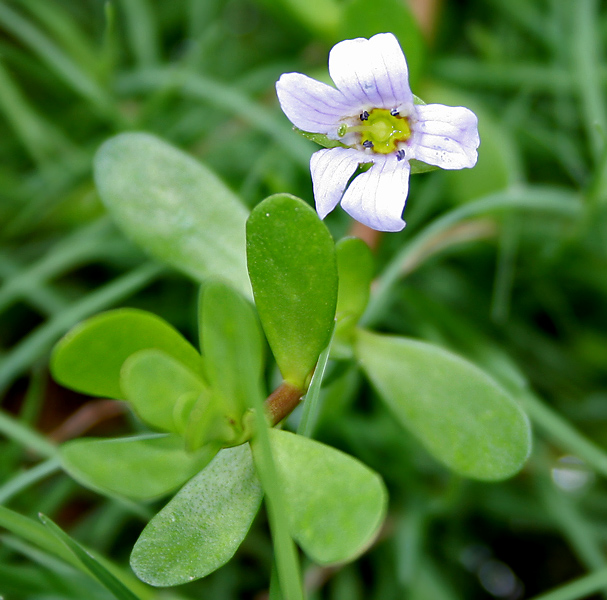
*WHOM
Students

Business Elites

Athletes

Active 65+

Dosage and Side effects:
Since Acytlecholine and Nicotine share the same receptors, so if you smoke, take 3 capsules each time.
References:
- Cohen B.M., Renshaw P.F., Stoll A.L., Wurtman R.J., Yurgelun-Todd D., Babb S.M. “Decreased brain choline uptake in older adults. An in vivo proton magnetic resonance spectroscopy study.” JAMA 1995 Sep 20;274(11):902-7.
- Kapalka, George M. (2010). “Substances Involved in Neurotransmission”. Nutritional and Herbal Therapies for Children and Adolescents. Elsevier. pp. 71–99. doi:10.1016/b978-0-12-374927-7.00004-2. ISBN 978-0-12-374927-7.
- Constantinidis C, Klingberg T. The neuroscience of working memory capacity and training. Nat Rev Neurosci. 2016 Jul;17(7):438-49. doi: 10.1038/nrn.2016.43. Epub 2016 May 26. PMID: 27225070.
- Canal N, Franceschi M, Alberoni M, Castiglioni C, De Moliner P, Longoni A. Effect of L-alpha-glyceryl-phosphorylcholine on amnesia caused by scopolamine. Int J Clin Pharmacol Ther Toxicol. 1991 Mar;29(3):103-7. PMID: 2071257.
- Kidd PM. Neurodegeneration from mitochondrial insufficiency: nutrients, stem cells, growth factors, and prospects for brain rebuilding using integrative management. Altern Med Rev. 2005 Dec;10(4):268-93. PMID: 16366737.
- De Jesus Moreno Moreno M. Cognitive improvement in mild to moderate Alzheimer’s dementia after treatment with the acetylcholine precursor choline alfoscerate: a multicenter, double-blind, randomized, placebo-controlled trial. Clin Ther. 2003 Jan;25(1):178-93. doi: 10.1016/s0149-2918(03)90023-3. PMID: 12637119.
- Ziegenfuss, T., Landis, J. & Hofheins, J. Acute supplementation with alpha-glycerylphosphorylcholine augments growth hormone response to, and peak force production during, resistance exercise. J Int Soc Sports Nutr 5, P15 (2008). https://doi.org/10.1186/1550-2783-5-S1-P15
- Glanzman DL. PKM and the maintenance of memory. F1000 Biol Rep. 2013;5:4. doi: 10.3410/B5-4. Epub 2013 Feb 1. PMID: 23413372; PMCID: PMC3564217.
- Nelson TJ, Sun MK, Hongpaisan J, Alkon DL. Insulin, PKC signaling pathways and synaptic remodeling during memory storage and neuronal repair. Eur J Pharmacol. 2008 May 6;585(1):76-87. doi: 10.1016/j.ejphar.2008.01.051. Epub 2008 Mar 4. PMID: 18402935.
- Ren SQ, Yan JZ, Zhang XY, Bu YF, Pan WW, Yao W, Tian T, Lu W. PKCλ is critical in AMPA receptor phosphorylation and synaptic incorporation during LTP. EMBO J. 2013 May 15;32(10):1365-80. doi: 10.1038/emboj.2013.60. Epub 2013 Mar 19. PMID: 23511975; PMCID: PMC3655466.
- Barbagallo Sangiorgi G, Barbagallo M, Giordano M, Meli M, Panzarasa R. alpha-Glycerophosphocholine in the mental recovery of cerebral ischemic attacks. An Italian multicenter clinical trial. Ann N Y Acad Sci. 1994 Jun 30;717:253-69. doi: 10.1111/j.1749-6632.1994.tb12095.x. PMID: 8030842.
- Kawamura T, Okubo T, Sato K, Fujita S, Goto K, Hamaoka T, Iemitsu M. Glycerophosphocholine enhances growth hormone secretion and fat oxidation in young adults. Nutrition. 2012 Nov-Dec;28(11-12):1122-6. doi: 10.1016/j.nut.2012.02.011. Epub 2012 Jun 5. PMID: 22673596.
- Ziegenfuss, T., Landis, J. & Hofheins, J. Acute supplementation with alpha-glycerylphosphorylcholine augments growth hormone response to, and peak force production during, resistance exercise. J Int Soc Sports Nutr 5, P15 (2008). https://doi.org/10.1186/1550-2783-5-S1-P15
- Ceda GP, Ceresini G, Denti L, Marzani G, Piovani E, Banchini A, Tarditi E, Valenti G. alpha-Glycerylphosphorylcholine administration increases the GH responses to GHRH of young and elderly subjects. Horm Metab Res. 1992 Mar;24(3):119-21. doi: 10.1055/s-2007-1003272. PMID: 1577400.
- Hoffman JR, Ratamess NA, Gonzalez A, Beller NA, Hoffman MW, Olson M, Purpura M, Jäger R. The effects of acute and prolonged CRAM supplementation on reaction time and subjective measures of focus and alertness in healthy college students. J Int Soc Sports Nutr. 2010 Dec 15;7:39. doi: 10.1186/1550-2783-7-39. PMID: 21156078; PMCID: PMC3009695.
- Parnetti L, Amenta F, Gallai V. Choline alphoscerate in cognitive decline and in acute cerebrovascular disease: an analysis of published clinical data. Mech Ageing Dev. 2001 Nov;122(16):2041-55. doi: 10.1016/s0047-6374(01)00312-8. PMID: 11589921.
- Svennerholm, Lars (September 1968). “Distribution and fatty acid composition of phosphoglycerides in normal human brain” (PDF). Journal of Lipid Research. 9 (5): 570–579. doi:10.1016/S0022-2275(20)42702-6. PMID 4302302.
- Kim, Hee-Yong (2007-06-29). “Novel metabolism of docosahexaenoic acid in neural cells”. Journal of Biological Chemistry. 282 (26): 18661–18665. doi:10.1074/jbc.R700015200. PMID 17488715.
- Christie WW (12 June 2014). “Phosphatidylcholine and Related Lipids: Structure, Occurrence, Biochemistry and Analysis” (PDF). The American Oil Chemists’ Society Lipid Library.
- Glade MJ, Smith K. Phosphatidylserine and the human brain. Nutrition. 2015
- Komori T. The Effects of Phosphatidylserine and Omega-3 Fatty Acid-Containing Supplement on Late Life Depression. Ment Illn. 2015 Apr 1;7(1):5647. doi: 10.4081/mi.2015.5647. PMID: 26266022; PMCID: PMC4508628.
- Franco RS, Puchulu-Campanella ME, Barber LA, Palascak MB, Joiner CH, Low PS, Cohen RM. Changes in the properties of normal human red blood cells during in vivo aging. Am J Hematol. 2013 Jan;88(1):44-51. doi: 10.1002/ajh.23344. Epub 2012 Oct 31. PMID: 23115087; PMCID: PMC4067949.
- Kato-Kataoka A, Sakai M, Ebina R, Nonaka C, Asano T, Miyamori T (November 2010). “Soybean-derived phosphatidylserine improves memory function of the elderly Japanese subjects with memory complaints”. Journal of Clinical Biochemistry and Nutrition. 47 (3): 246–55. doi:10.3164/jcbn.10-62. PMC 2966935. PMID 21103034.
- Poddar J, Pradhan M, Ganguly G, Chakrabarti S. Biochemical deficits and cognitive decline in brain aging: Intervention by dietary supplements. J Chem Neuroanat. 2019 Jan;95:70-80. doi: 10.1016/j.jchemneu.2018.04.002. Epub 2018 Apr 17. PMID: 29678666.
- Nunzi MG, Guidolin D, Petrelli L, Polato P, Zanotti A. Behavioral and morpho-functional correlates of brain aging: a preclinical study with phosphatidylserine. Adv Exp Med Biol. 1992;318:393-8. doi: 10.1007/978-1-4615-3426-6_35. PMID: 1322026.
- Nelson D, Cox M (2008). Lehninger Principles of biochemistry (5 ed.). W.H Freeman and company. pp. 350. ISBN 9781429208925.
- EFSA Panel on Dietetic Products, Nutrition and Allergies (2010-10-01). “Scientific Opinion on the substantiation of health claims related to phosphatidyl serine (ID 552, 711, 734, 1632, 1927) pursuant to Article 13(1) of Regulation (EC) No 1924/2006”. EFSA Journal. 8 (10): 1749. doi:10.2903/j.efsa.2010.1749. ISSN 1831-4732.
- Xianpeng Zu, Mingjian Zhang, Wencai Li, Haisheng Xie, Zhang Lin, Niao Yang, Weidong Zhang, Antidepressant-like Effect of Bacopaside I in Mice Exposed to Chronic Unpredictable Mild Stress by Modulating the Hypothalamic-Pituitary-Adrenal Axis Function and Activating BDNF Signaling Pathway, Neurochem Res, 42 (11) (2017), pp. 3233-3244
- Abdul Manap, A. S., Vijayabalan, S., Madhavan, P., Chia, Y. Y., Arya, A., Wong, E. H., Koshy, S. (2019). Bacopa monnieri, a Neuroprotective Lead in Alzheimer Disease: A Review on Its Properties, Mechanisms of Action, and Preclinical and Clinical Studies. Drug Target Insights, 13, 1177392819866412
- Raghav S, Singh H, Dalal PK, Srivastava JS, Asthana OP. Randomized controlled trial of standardized Bacopa monniera extract in age-associated memory impairment. Indian J Psychiatry. 2006 Oct;48(4):238-42
- Rastogi M, Ojha RP, Prabu PC, Devi BP, Agrawal A, Dubey GP. Prevention of age-associated neurodegeneration and promotion of healthy brain ageing in female Wistar rats by long term use of bacosides. Biogerontology. 2012 Apr;13(2):183-95
- Calabrese C, Gregory WL, Leo M, Kraemer D, Bone K, Oken B. Effects of a standardized Bacopa monnieri extract on cognitive performance, anxiety, and depression in the elderly: a randomized, double-blind, placebo-controlled trial. J Altern Complement Med. 2008 Jul;14(6):707-13
- Vollala VR, Upadhya S, Nayak S. Enhanced dendritic arborization of hippocampal CA3 neurons by Bacopa monniera extract treatment in adult rats. Rom J Morphol Embryol. 2011;52(3):879-86

For a hopeful future.
Neoro+ is the trademark belongs to Bishop Bio lab.


